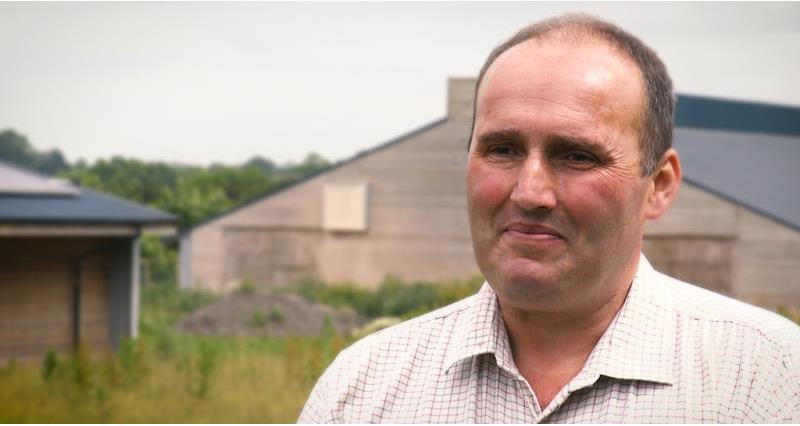What's our business?
I work with my brother Ady on the family farm in Leicestershire, which was set up by our parents in 1971. He has three young sons. The farm consists of both free-range and colony laying hens. We also pack and market both our own eggs and those from contracted producers.
The business services all sectors of the market, including major retailers, the food service sector and local shops. Both Ady and I have a keen interest in seeing the business grow and see a real future in farmers working more closely with the retail sector to promote product growth and hopefully maintaining increasing margins.
How does avian influenza affect us?
We take the risk of AI very seriously in our business, and animal welfare is of utmost importance. As such we’re making some changes to ensure our birds are still happy and healthy while housing measures are in place.
Hens are creatures of habit and pretty active so we had to make sure that bird welfare was maintained from the moment the birds are brought inside. We anticipate there will be a settling in period while the birds acclimatise to the new arrangements and we have invested in enrichments to keep the birds happy.

I’m going to trial some supplemental pecking blocks from two different suppliers to see what the birds make of them. I think it’s important to look at how effective different products are at entertaining the birds and enriching their environment. I’ve also bought 40 plastic inflatable footballs to put in the sheds for the birds to play with. Interestingly they seem to like the red ones but aren’t so keen on the green, yellow and blue ones.

When we had to house the birds in 2016-17 I put road cones in the poultry houses, the hens particularly love the reflective bands on them and will happily peck away at them. We also strung up hay nets over the litter area (ones with small holes about one inch in diameter otherwise they get emptied too easily) filled with bales of lucerne.
The height at which they’re hung is important, too low and the birds will go through the contents quickly and they’ll also lean on them to lay; too high and they won’t reach it! They need to have to stretch so they work for it and to keep them entertained. The added benefit of the lucerne is that it adds fibre into their diet.
Scratch area
We'll be walking the sheds more frequently throughout the day to move the birds around, especially in the morning to discourage the birds from congregating around the pop-holes. Increasing the number of enrichments means we may get more floor eggs so by walking through the birds we’re gently moving them around and discouraging them from settling in corners.
Although the floor eggs are harder to find with all the extras ‘toys’ in the sheds, time spent in with the birds allows us to keep an eye on their behaviour, so if they’re getting a bit overzealous with their dust bathing we bring in a distraction.
Each shed will have its challenging areas and a producer will always know where they are, we’re paying a lot of attention to what is going on in our poultry houses to help manage the birds. For us, it is the narrower scratch areas in flat deck houses which have proved more challenging in keeping the birds entertained.
Maintaining good bird health and welfare and keeping AI out with tightened biosecurity is our priority, there is no one size fits all approach but with a bit of thought and spending time observing the birds, poultry keepers can establish what works best for their own flock.
